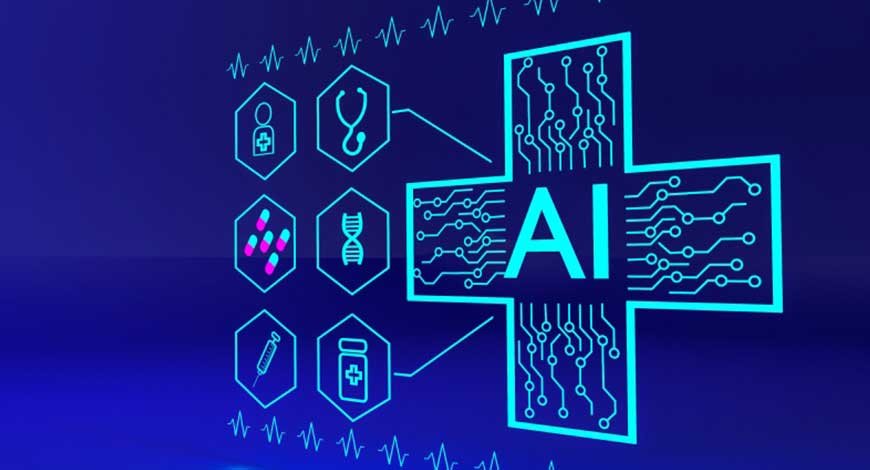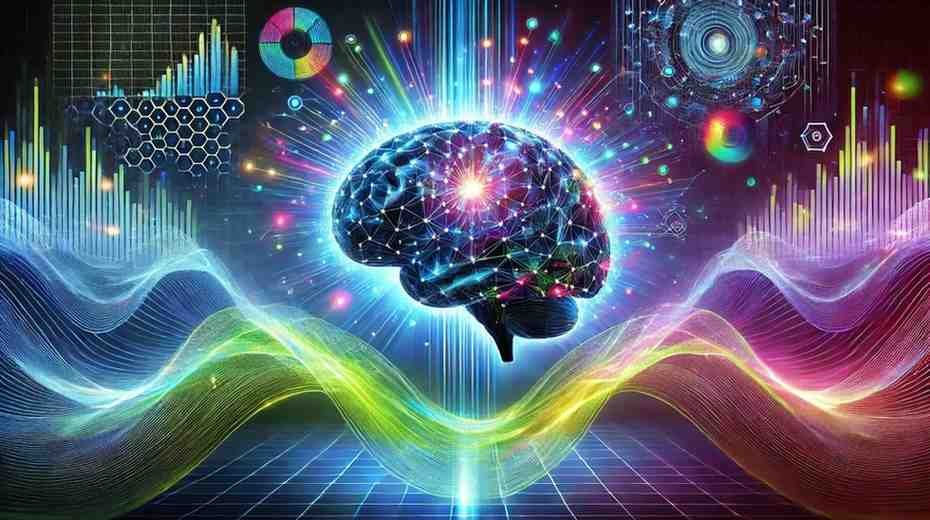How AI is Revolutionizing Healthcare and Medicine
How AI is Revolutionizing Healthcare and Medicine
Introduction
Artificial Intelligence (AI) is no longer a futuristic concept—it is here, and it is transforming industries across the globe. One of the most significant areas where AI is making a profound impact is healthcare. From diagnosing diseases to personalizing treatment plans, AI is revolutionizing how healthcare is delivered and managed. This article explores how AI is revolutionizing healthcare and medicine, its benefits, challenges, and what the future holds for this groundbreaking technology. By understanding the role of AI in healthcare, we can better appreciate how it is shaping the future of medicine and improving patient outcomes.
What is Artificial Intelligence (AI)?
Understanding the Basics
Artificial Intelligence (AI) refers to the simulation of human intelligence in machines that are programmed to think, learn, and make decisions. These machines can analyze vast amounts of data, recognize patterns, and perform tasks that typically require human intelligence, such as problem-solving and decision-making.
Key Features of AI
- Machine Learning (ML): A subset of AI that enables machines to learn from data and improve their performance over time without being explicitly programmed.
- Natural Language Processing (NLP): Allows machines to understand and interpret human language, enabling applications like chatbots and voice assistants.
- Computer Vision: Enables machines to interpret and analyze visual information, such as medical images.
- Robotics: Combines AI with mechanical engineering to create robots that can perform tasks autonomously or assist humans.
The Current State of Global Healthcare Systems
Challenges in Traditional Healthcare Systems
Global healthcare systems face numerous challenges, including:
- Rising Costs: Healthcare expenses are increasing due to aging populations, chronic diseases, and the high cost of medical treatments.
- Workforce Shortages: There is a global shortage of healthcare professionals, leading to increased workloads and burnout.
- Inefficiencies: Manual processes, administrative burdens, and fragmented systems lead to inefficiencies and delays in care delivery.
- Health Disparities: Access to quality healthcare varies widely, with underserved populations often receiving inadequate care.
- Data Overload: The vast amount of medical data generated daily can be overwhelming, making it difficult for healthcare providers to make informed decisions.
The Need for Innovation
Given these challenges, there is a growing need for innovation in healthcare. AI offers a promising solution by automating processes, improving decision-making, and enhancing patient care.
How AI is Revolutionizing Healthcare and Medicine
Enhancing Diagnostics and Early Detection
One of the most significant impacts of AI in healthcare is its ability to enhance diagnostics and early detection of diseases. AI algorithms can analyze medical images, such as X-rays, MRIs, and CT scans, with remarkable accuracy. For example, AI-powered tools can detect early signs of cancer, cardiovascular diseases, and neurological disorders, often with greater precision than human doctors.
Personalizing Treatment Plans
AI enables personalized medicine by analyzing patient data, including genetic information, medical history, and lifestyle factors. This allows healthcare providers to tailor treatment plans to individual patients, improving outcomes and reducing the risk of adverse effects. For instance, AI can help oncologists select the most effective chemotherapy drugs based on a patient’s genetic profile.
Streamlining Administrative Tasks
AI can automate administrative tasks, such as scheduling appointments, managing medical records, and processing insurance claims. This reduces the burden on healthcare staff, allowing them to focus on patient care. AI-powered chatbots and virtual assistants can also handle routine inquiries, improving patient engagement and satisfaction.
Improving Drug Discovery and Development
The process of discovering and developing new drugs is time-consuming and expensive. AI can accelerate this process by analyzing vast amounts of data to identify potential drug candidates, predict their efficacy, and optimize clinical trials. This can lead to faster development of new treatments and reduce costs.
Enhancing Remote Monitoring and Telemedicine
AI-powered wearable devices and remote monitoring tools enable continuous tracking of patients’ health metrics, such as heart rate, blood pressure, and glucose levels. This allows for early detection of potential health issues and timely interventions. Telemedicine platforms powered by AI can provide remote consultations, making healthcare more accessible to people in remote or underserved areas.
Supporting Clinical Decision-Making
AI can assist healthcare providers in making informed decisions by analyzing patient data and providing evidence-based recommendations. For example, AI-powered clinical decision support systems (CDSS) can help doctors diagnose conditions, choose appropriate treatments, and predict patient outcomes.
Real-World Applications of AI in Healthcare
Radiology and Imaging
AI is transforming radiology by automating the analysis of medical images. Tools like IBM Watson Health and Google’s DeepMind can detect abnormalities in X-rays, MRIs, and CT scans, helping radiologists make faster and more accurate diagnoses.
Pathology
AI-powered digital pathology platforms can analyze tissue samples and detect diseases like cancer with high accuracy. This reduces the risk of human error and speeds up the diagnostic process.
Genomics
AI is playing a crucial role in genomics by analyzing genetic data to identify mutations and predict disease risk. Companies like 23andMe and Illumina use AI to provide personalized genetic insights and recommendations.
Mental Health
AI-powered mental health apps, such as Woebot and Wysa, offer cognitive behavioral therapy (CBT) and emotional support to users. These apps can help manage conditions like depression and anxiety by providing personalized interventions and tracking progress.
Chronic Disease Management
AI is being used to manage chronic diseases like diabetes and hypertension. Devices like continuous glucose monitors (CGMs) and AI-powered apps help patients track their health metrics and receive personalized recommendations.
The Benefits of AI in Healthcare
Improved Accuracy and Efficiency
AI enhances the accuracy and efficiency of healthcare processes, from diagnostics to treatment planning. This leads to better patient outcomes and reduces the risk of errors.
Cost Savings
By automating tasks and improving efficiency, AI can reduce healthcare costs. This makes healthcare more affordable and accessible to a larger population.
Enhanced Patient Experience
AI-powered tools, such as virtual assistants and telemedicine platforms, improve patient engagement and satisfaction. Patients can access care more easily and receive personalized support.
Faster Drug Development
AI accelerates the drug discovery and development process, leading to faster availability of new treatments. This can save lives and reduce the burden of disease.
Better Resource Allocation
AI helps healthcare providers allocate resources more effectively by predicting patient needs and optimizing workflows. This ensures that resources are used efficiently and that patients receive timely care.
Challenges and Concerns
Data Privacy and Security
The use of AI in healthcare involves the collection and analysis of vast amounts of sensitive patient data. Ensuring the privacy and security of this data is a major challenge.
Ethical Considerations
AI raises ethical concerns, such as the potential for bias in algorithms and the impact on employment in the healthcare sector. It is essential to address these concerns to ensure that AI is used responsibly.
Regulatory Hurdles
The regulatory environment for AI in healthcare is still evolving. Ensuring that AI-powered tools comply with regulations and standards is crucial for their safe and effective use.
Integration with Existing Systems
Integrating AI with existing healthcare systems can be complex and requires significant investment. Ensuring compatibility and seamless operation is a major challenge.
Trust and Acceptance
Gaining the trust and acceptance of healthcare providers and patients is essential for the successful adoption of AI. Educating stakeholders about the benefits and addressing concerns is crucial.
The Future of AI in Global Healthcare Systems
Continued Innovation
The future of AI in healthcare will be driven by continued innovation. Advances in machine learning, natural language processing, and robotics will further enhance the capabilities of AI and open up new possibilities for its application in healthcare.
Increased Adoption
As the benefits of AI become more widely recognized, we can expect to see increased adoption of the technology in healthcare. More hospitals, clinics, and healthcare providers will invest in AI-powered tools to improve patient care and operational efficiency.
Collaboration and Partnerships
The successful implementation of AI in healthcare will require collaboration and partnerships between technology providers, healthcare organizations, and governments. Public-private partnerships will play a crucial role in driving innovation and investment in AI solutions.
Focus on Ethical AI
As AI becomes more prevalent in healthcare, there will be a growing focus on ensuring that it is used ethically and responsibly. This includes addressing issues like bias, transparency, and accountability.
Personalized and Preventive Care
AI will enable more personalized and preventive care by analyzing patient data and providing tailored recommendations. This will help prevent diseases and improve overall health outcomes.
Conclusion
AI is revolutionizing global healthcare systems by enhancing diagnostics, personalizing treatment plans, and improving patient care. From streamlining administrative tasks to accelerating drug discovery, AI offers numerous benefits for healthcare providers and patients alike. While challenges remain, the continued innovation and collaboration among stakeholders will pave the way for a more efficient, accessible, and equitable healthcare system. As we look to the future, the potential of AI to transform healthcare is immense, offering a promising path towards better health and well-being for all.




Post Comment